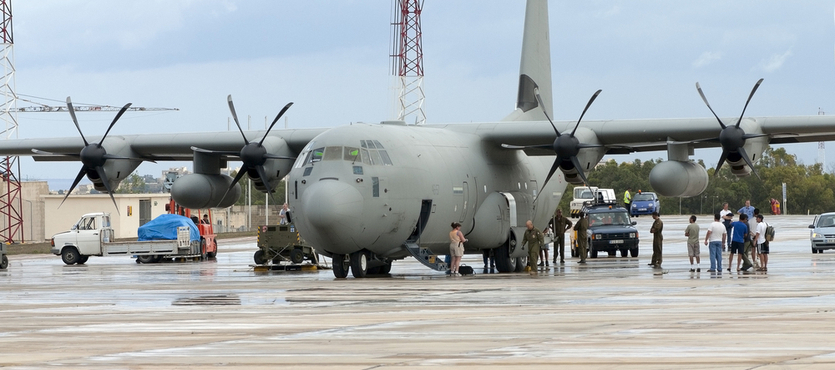In 2004, President George W. Bush said American troops would leave the war-torn country when it could defend itself against foreign and domestic threats. Almost 20 years later, that goal is still unreached.
Before 2014, Iraq was almost completely dependent on America for protection. Since the late 2010s, Iraq’s military ground component has improved substantially, though field commanders still have problems integrating air power, especially fixed-wing craft, into the mix. The Americans are helping by doing less. The bloated Task Force Iraq has been replaced by a Military Advisory Group. Other possible approaches include closing or at least shrinking the American embassy in Baghdad, if Iraqi forces cannot adequately protect it.
There are clear signs of progress. “A year ago, we’d see the Iraqi Army go out and clear a system or something. They’d go out just during the day, they’d come back, they wouldn’t even spend the night out there,” one defense official remarked. “Over time I’ve seen them stay out for longer and longer periods as they improve their ability to sustain themselves.”
Threats to Iraq
We are approaching the 20th anniversary of the March 2003 invasion of Iraq. While it is clear that the United States and its private military contractors can remain there forever, it is equally clear that to pull the plug prematurely would essentially mean that all the dead made the ultimate sacrifice for nothing.
A line must be drawn somewhere. So, it makes sense to assess the threats that Iraq faces now and in the immediate future.
Internal Militants
ISIS, which grew from the wreckage of al Qaeda in Iraq, is probably the greatest internal threat to the country’s security. For the most part, Iraq’s democratically-elected government is a secular one. ISIS fighters have a different vision of what life should be like in a Muslim state. Most people think their passion is sorely misdirected, but the fighters themselves do not see things that way. That passion allows them to recruit almost at will.
At the same time, Kurds in the North long for the state which the 1917 Sykes-Picot agreement denied them. Many are willing to stop at nothing to see their nation restored, and many foreigners, particularly the Turks, are willing to help them.
In 1917, with World War I still raging and going in favor of Germany and her allies, the British and French secretly carved up most of the Ottoman Empire between themselves. The line they drew on a map essentially bisected Kurdistan.
Iran, which is the traditional enemy of almost all other Arab states, also sponsors militants in Iraq. When the Americans or their Iraqi allies take action against these groups, Tehran normally stands up for them, thus increasing the tensions between these two neighbors.
Iran
For the most part, relations between these two countries have been rather good since 2005, especially considering that they fought a protracted war with one another in the 1980s.
But the honeymoon is over. In August 2019, Iran seized an Iraqi tanker in the Persian Gulf, claiming the vessel was “smuggling.” The incident added fuel to a fire that began smoldering after a 2018 rocket attack in the port city of Basra.
However, the most significant threat is a possible conflict between the United States and Iran. If that happens, the Americans would almost certainly use existing bases in Iraq as staging areas. That could mean Iraqis will get caught in the crossfire.
Rebuilding Challenges
Generally, winning the peace is at least as important as winning the war. And, until Iraq is at least substantially rebuilt, there can be no victory in this area.
The first priority is still rebuilding roads, bridges, energy production facilities, and other infrastructure items. Progress in this area has been uneven at best. Next comes public buildings, like schools and hospitals. At this point, refugees usually return home, giving the city a level of normalcy. That is assuming refugees also feel reasonably safe.
How Contractors Help
Private military contractors in Iraq provide security against all three of the major threats outlined above.
Anti-insurgency work is usually more like police work. Of course, contractors must use force when needed. But for the most part, suppressing insurgents means providing a deterrence and building relationships. Since many contractors are former law enforcement officers, they are well-suited to fill this role in Iraq and elsewhere.
Contractors also provide security at military installations. U.S. law prevents contractors from engaging in offensive operations. So, they staff checkpoints, verify identifications, provide MP services, and escort supply convoys. These activities free regular servicemembers to operate elsewhere.
Security is also necessary at rebuilding projects. Insurgents see such areas as easy targets that can drive frustrated Americans from their soil. When contractors provide the aforementioned police-like deterrence, insurgents think twice before they launch attacks. The construction project is no longer low-hanging fruit.
Compensation Available
All these operations are very risky. Regular servicemembers rely on the VA for injury compensation, and injured contractors rely on the Defense Base Act. In addition to medical bill payment, the DBA also replaces lost wages, something the VA medical system does not do.
The medical bill payment usually includes all reasonably necessary medical expenses, and not just doctor or hospital bills. The ancillary costs, like transportation and physical therapy, often eclipse the medical bills themselves. Most temporarily disabled contractors receive two-thirds of their average weekly wage for the duration of their temporary disabilities. Alternative compensation is available in other situations.
Procedurally, most DBA claims start with a settlement conference. If that conference does not bear fruit, the next stage is a trial-like hearing before an Administrative Law Judge.
For more information about some DBA specifics, contact Barnett, Lerner, Karsen, Frankel & Castro, P.A.

